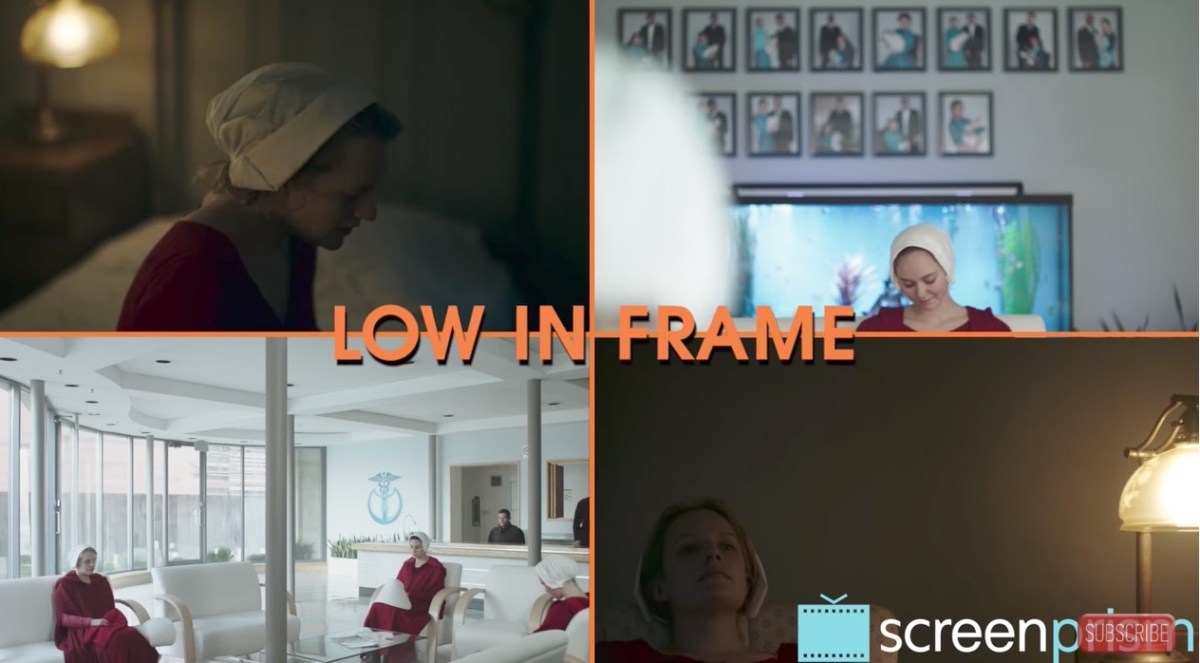The Handmaid’s Tale swept up at the Emmy Awards last night, and while it was up against other great shows and talents, it’s not a surprising win. If you’re not convinced, ScreenPrism has created a video essay analyzing the amazing craft of the series, pointing out the many ways that Hulu’s The Handmaid’s Tale is able to tell stories of isolation, conformity, and oppression through visual storytelling.
Titled “Framing Strong Women,” the video refers to the show as “a masterclass in using audiovisual techniques like framing, color, music, flashbacks and voiceover to express what characters are thinking and feeling.”
It observes the skillful cinematography by Colin Watkinson and Reed Morano, from obscured images to different perspectives, and shallow focus. The show’s use of extreme close ups (accounts said the camera was at times inches from Elisabeth Moss’ face) is an ongoing motif that allows for a look at Offred’s selfhood, also explored in The Nerdwriter’s (Evan Puschak) analysis on the technique.
Here, we get close analysis of the ritual scene of sexual state violence, the vibrant uses of color, Offred’s voiceover, and more. It emphasizes how there’s never a wasted moment in The Handmaid’s Tale—each conversation, ceremony, and quiet contemplation is doing something in regard to our understanding of the Gilead society, the characters, and the dynamics going on between them. While we recognize this as we watch the scenes, reacting to certain kinds of framing or edits, having it laid out really makes the craft of The Handmaid’s Tale spellbinding.
It was an award well-deserved and we’re looking forward to seeing more of this great visual storytelling in Season 2 (though hopefully with a few changes).
(via email, image: screencap)
Want more stories like this? Become a subscriber and support the site!
—The Mary Sue has a strict comment policy that forbids, but is not limited to, personal insults toward anyone, hate speech, and trolling.—









Published: Sep 18, 2017 03:31 pm